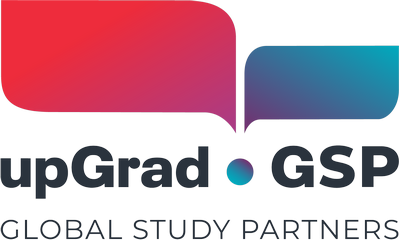The indispensable value of education agents in Australia
Irreplaceable human connections
Our world today has evidently evolved into one that runs at lightning speed, thanks to the many streamlined processes offered by modern technology. With the wide range of technology-driven solutions available, especially now with the emergence of AI, it seems as if anything can be done within a matter of seconds. But while these offerings have proven to be vital in making our day-to-day lives much more convenient, there are just certain things that cannot be replaced by technology – one of them being real human connections.
A majority of cases, if not all, definitely benefit from having direct human interactions. In the field of international education, this rings very much true. The service and care given by education agents to interested students is simply unparalleled. While technological alternatives can reproduce accurate information to address students’ inquiries and help them decide on a course and school, the genuineness of interacting with another human being, that education agents are able to provide, can never be replicated by a bot or machine.
International enrolments via agencies
In October 2019, during the 33rd Australian International Education Conference, Australia’s Department of Education released a report which showed that 75% of all international enrolments into the country involved an education agent. According to The PIE News, this was the first public release of agency performance data based on information logged within PRISMS, the Provider Registration and International Student Management System, which logs international students enrolments and looks to provide transparency for education providers.
Given that three quarters of the international student population in Australia have gone through agencies and intermediaries to be there, we can conclude that education agents don’t just play a big role in the industry, but are actually the ones propagating it and pushing it forward. It’s only fitting that Education Minister Dan Tehan said that “it is more important than ever to ensure quality practices are followed”.
One good example of an institution that has realised the significance of agent involvement is Torrens University. Their vice president for international Rob McGowan told PIE News how they had tried to shift into using more technology in their recruitment operations during the pandemic to take the place of agents. He said: “In the moment they were successful, [such as] our online recruitment platform which looked at replacing human counsellors with virtual counsellors – in the moment [that was] very successful and totally appropriate[.] [But] what we’ve actually seen is that as the world has gone back to this real insatiable need for the human touch, actually some of those things have been less appropriate and less important. It no longer has the currency that it had during Covid. We’ve replaced that with more re-engaging with our traditional partners – our agent networks that are an extension of the Torrens family.”
Another example is the University of Newcastle, as their deputy vice-chancellor for global Kent Anderson said that he was “the biggest fan of international education agents, always have been,” and was even bold enough to state that he thinks that an education agent is “the most critical person in the sector”.
Safeguarding the sector’s most valuable players
Despite what they bring to the table, education agents are sometimes taken for granted in the industry. According to English Australia CEO Brett Blacker: “International education [sometimes] gets a bad rap and unfortunately, education agents take that more than anyone[.]” The field of international education can be riddled with issues such as bidding wars on agent commissions and others, but it’s not fair that education agents are the ones getting the short end of the stick, especially given their huge contribution to the industry’s entire mechanism.
Blacker further stated that the provider-agent relationship has to “be a two way street”, and adds: “I think as we work towards whatever happens out of the Education Services for Overseas Students Act 2000 reforms and what comes out of the Joint Standing Committee in International Education, Tourism or the Migration Review, we do it collectively knowing that this is our most valuable partner in the room, not somebody we can just discount and push all the blame on.”
Amid reforms and changes in the education landscape, remember that education agents are not expendable, but rather the sector’s most valuable allies. Supporting education agents creates a more robust, inclusive and student-centric international education sector, grounded in genuine human connections.
If you share this vision, consider becoming a part of GSP’s growing network of recruitment partners. Reach out to our dedicated Business Development Managers in your region.




